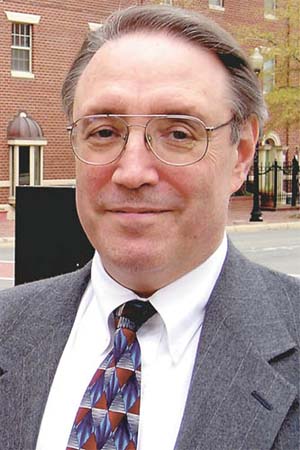
Two of the leading pain experts, Dr. Russell K. Portenoy of Beth-Israel Medical Center and Dr. James N. Campbell of Johns Hopkins University, testified without pay as experts for the defense. They said Dr. Hurwitz was widely known as a knowledgeable physician and passionate advocate of giving patients full pain relief, unlike many doctors who were reluctant to prescribe opioids because they feared legal repercussions, particularly when dealing with patients who sometimes used illegal drugs. Such “problem patients” consumed so much time and energy that most doctors refused to treat them “regardless of what the consequences would be for the patient,” Dr. Campbell testified. He said that he had been initially skeptical of some of Dr. Hurwitz’s high-dose treatments, but was then impressed by the results in patients he sent to Dr. Hurwitz. He said some doctors might argue that Dr. Hurwitz was guilty in some instances of negligence that would make him liable for damages in a civil case. But Dr. Campbell contradicted the prosecution’s experts by testifying that all the prescriptions were clearly within the “bounds of medical practice.” Hurwitz was a former volunteer medical director for the Peace Corps in Brazil in the 1970's.
William E. Hurwitz, the prominent doctor on trial here for drug trafficking, spent more than two days on the witness stand last week telling a jury why he had prescribed painkillers to patients who turned out to be drug dealers and addicts
At Trial, Pain Has a Witness
By JOHN TIERNEY
Published: April 24, 2007
ALEXANDRIA, Va. —William E. Hurwitz, the prominent doctor on trial here for drug trafficking, spent more than two days on the witness stand last week telling a jury why he had prescribed painkillers to patients who turned out to be drug dealers and addicts. But the clearest explanation of his actions — and of the problem facing patients who are in pain — came earlier in the trial.
It occurred, oddly enough, during the appearance of a hostile witness, Dr. Robin Hamill-Ruth, one of the experts who was paid by the federal prosecutors to analyze Dr. Hurwitz’s prescriptions for OxyContin and other opioids.
Dr. Hamill-Ruth, who noted that she never prescribed the highest-strength OxyContin tablet, said some of Dr. Hurwitz’s actions were “illegal and immoral” because he prescribed high doses despite warning signs in patient behavior that the opioids were being resold or misused.
Then, during cross-examination by the defense, Dr. Hamill-Ruth was shown records of a patient who had switched to Dr. Hurwitz after being under her care at the University of Virginia Pain Management Center. This patient, Kathleen Lohrey, an occupational therapist living in Charlottesville, Va., complained of migraine headaches so severe that she stayed in bed most days.
Mrs. Lohrey had frequently gone to emergency rooms and had once been taken in handcuffs to a mental-health facility because she was suicidal. In 2001, after five years of headaches and an assortment of doctors, tests, therapies and medicines, she went to Dr. Hamill-Ruth’s clinic and said that the only relief she had ever gotten was by taking Percocet and Vicodin, which contain opioids.
Mrs. Lohrey was informed that the clinic’s philosophy “includes avoidance of all opioids in chronic headache management,” according to the clinic’s record. The clinic offered an injection to anesthetize a nerve in her forehead, but noted that “the patient is not eager to pursue this option.” Mrs. Lohrey was referred to a psychologist and given a prescription for BuSpar, a drug to treat anxiety, not pain.
“You gave her BuSpar and told her to come back in two and a half months?” Richard Sauber, Dr. Hurwitz’s lawyer, asked Dr. Hamill-Ruth. Dr. Hamill-Ruth replied that unfortunately, the clinic was too short-staffed at that point to see Mrs. Lohrey sooner. Under further questioning Dr. Hamill-Ruth said that she was not aware that BuSpar’s side effects included headaches.
Mrs. Lohrey looked elsewhere for help. Having seen Dr. Hurwitz on television _ — “60 Minutes” and other programs had featured his controversial high-dose opioid treatments — she sent him a letter describing her pain and the accompanying nausea and vertigo.
“I have lost hope of retrieving my life as it was,” she wrote, because she could find no doctor to take her seriously. “I currently have a physician who has said that I am psychologically manufacturing my headaches, and that I am addicted to narcotic pain relief. This of course is not the first time that I have been treated as a ‘nut’ or a ‘junkie.’ ”
It was the kind of letter Dr. Hurwitz received from people across the country. His office in the Virginia suburbs of Washington was like a Lourdes for people with pain, one of the most widespread health problems. Surveys have found that one in five adults deals with chronic pain, and that it is treated adequately only about half the time.
Prescribing opioids was once taboo because of concerns over patients’ becoming addicted. But medical opinion gradually shifted over the past two decades as researchers concluded that high doses of opioids could sometimes be safer and more effective than alternatives like surgery or injections.
Two of the leading pain experts, Dr. Russell K. Portenoy of Beth-Israel Medical Center and Dr. James N. Campbell of Johns Hopkins University, testified without pay as experts for the defense. They said Dr. Hurwitz was widely known as a knowledgeable physician and passionate advocate of giving patients full pain relief, unlike many doctors who were reluctant to prescribe opioids because they feared legal repercussions, particularly when dealing with patients who sometimes used illegal drugs.
Such “problem patients” consumed so much time and energy that most doctors refused to treat them “regardless of what the consequences would be for the patient,” Dr. Campbell testified. He said that he had been initially skeptical of some of Dr. Hurwitz’s high-dose treatments, but was then impressed by the results in patients he sent to Dr. Hurwitz.
He said some doctors might argue that Dr. Hurwitz was guilty in some instances of negligence that would make him liable for damages in a civil case. But Dr. Campbell contradicted the prosecution’s experts by testifying that all the prescriptions were clearly within the “bounds of medical practice.”
That legal phrase is the crucial distinction in this criminal case, which the jury was deliberating as this column went to press: Did Dr. Hurwitz knowingly prescribe drugs to be used for nonmedical purposes? (For updates on the case, see www.nytimes.com/tierneylab.)
When Dr. Hurwitz testified last week, he spent hours going through the histories of those he called his “misbehaving patients,” telling why he believed they all had genuine problems. “Ultimately, pain is what the patient says it is,” he told the jury, contrasting his approach with what he called the traditional “Father Knows Best” approach of old-school doctors.
In retrospect, he acknowledged, he should have been more suspicious of patients who asked for early refills, reported losing prescriptions and tested positive for illegal drugs. He did get rid of the worst patients, he said, but he believed others were reforming, and he feared they would not get help anywhere else if he dismissed them.
“I felt that I had a duty to the patients,” he said. “I hated the idea of inflicting the pain of withdrawal on them.” After the closure of his practice in 2002, he said, two of his patients committed suicide because they gave up hope of finding pain relief.
The most moving testimony came from Mrs. Lohrey and other patients who described their despondency before finding Dr. Hurwitz. They said they were amazed not just at the pain relief he provided but at the way he listened to them, and gave them his cellphone number with instructions to call whenever they wanted.
“I felt like I was his only patient,” Mrs. Lohrey testified. “I think he truly understood the nature of what I was going through.” When she lost her health insurance, she said, Dr. Hurwitz continued treating her at no charge, and helped her enroll in a program that paid for her opioid prescriptions. After Dr. Hurwitz’s practice was shut down, she could not find anyone to treat her for seven months. Eventually, she found a doctor willing to prescribe small numbers of low-dose Percocet, but she said she was not getting enough medicine to consistently blunt the headaches.
“The last two weeks, I was pretty much in bed and sick with the headaches and the nausea and the whole nine yards,” she said, explaining that she had deliberately undergone the two weeks of pain in order not to use up any of her pills.
“I had to save up medication,” she testified, “so I could be here today.”
















